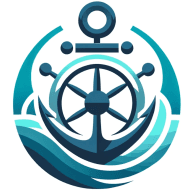The ocean, a vast and mysterious world, is home to a myriad of life forms and ecosystems. However, it is under constant threat due to human activities. This blog post delves into the intersection of maritime activities and ocean conservation initiatives. We will explore how these two seemingly disparate areas can work together to protect and preserve our precious marine environments.
Understanding the Ocean's Plight
The ocean's health is in a precarious state. Overfishing, pollution, and climate change are just a few of the challenges it faces. These issues not only threaten the survival of marine species but also disrupt the balance of the entire ecosystem.
Overfishing is a significant concern. It depletes fish populations faster than they can replenish, leading to a decline in biodiversity. Pollution, particularly plastic waste, is another major problem. Every year, millions of tons of plastic end up in the ocean, causing harm to marine life and ecosystems.
Climate change exacerbates these problems. Rising temperatures and ocean acidification, a result of increased carbon dioxide levels, pose severe threats to marine life, particularly coral reefs. These challenges underscore the urgent need for effective ocean conservation initiatives.
The Role of Maritime Activities in Ocean Conservation
Maritime activities play a crucial role in ocean conservation. These activities, which include shipping, fishing, and offshore drilling, have a significant impact on the ocean's health. However, they also hold the potential to contribute positively to conservation efforts.
Shipping, for instance, is responsible for a significant portion of global carbon emissions. Yet, it also provides opportunities for conservation. Ships can monitor and collect data on marine life, contributing to scientific research and conservation efforts. Similarly, sustainable fishing practices can help maintain fish populations and biodiversity.
Offshore drilling, while often associated with environmental harm, can also play a role in conservation. Companies can invest in technologies and practices that minimize their impact on the environment. They can also contribute to conservation initiatives, such as funding research or supporting marine protected areas.
Case Studies of Successful Conservation Initiatives
Several successful conservation initiatives demonstrate the potential for maritime activities to contribute to ocean health. One such example is the Marine Stewardship Council (MSC). The MSC promotes sustainable fishing practices through its certification program. Fishermen who meet the MSC's stringent standards can sell their catch as MSC-certified, providing a market incentive for sustainable fishing.
Another example is the use of shipping vessels to monitor marine life. Companies like Global Fishing Watch use satellite data to track fishing vessels, helping to combat illegal fishing. Similarly, some shipping companies equip their vessels with sensors to collect data on ocean conditions, contributing to climate change research.
The Future of Maritime Activities and Ocean Conservation
The future of maritime activities and ocean conservation lies in collaboration and innovation. Maritime industries must work closely with conservationists, scientists, and policymakers to develop and implement sustainable practices. Technological innovation will also play a crucial role, from developing cleaner fuels for ships to designing more sustainable fishing gear.
Moreover, there is a growing recognition of the need for a holistic approach to ocean conservation. This approach considers the ocean as a complex, interconnected system, rather than focusing on individual species or habitats. It also recognizes the importance of social and economic factors in conservation, such as the livelihoods of coastal communities.
How You Can Contribute to Ocean Conservation
Everyone can contribute to ocean conservation in their own way. Simple actions, such as reducing plastic use, can make a significant difference. Supporting sustainable seafood is another powerful action. Look for products with sustainability certifications, like the MSC label, to ensure your seafood comes from sustainable sources.
You can also support organizations working on ocean conservation. Many organizations rely on donations to fund their work, from scientific research to advocacy. Volunteering is another great way to contribute. Many conservation organizations offer volunteer opportunities, from beach cleanups to citizen science projects.
The Ocean's Call for Help
The ocean is calling for our help. Its health is deteriorating, and time is running out. But there is hope. Maritime activities, when conducted sustainably, can play a significant role in ocean conservation. Through collaboration, innovation, and individual action, we can turn the tide and ensure a healthy future for our oceans.
Sailing Towards a Sustainable Future: The Intersection of Maritime Activities and Ocean Conservation
The ocean's health is a testament to our relationship with nature. It reflects our actions, for better or worse. But we have the power to change the narrative. By harnessing the potential of maritime activities for conservation, we can help restore the ocean's health. It's a journey that requires collective effort, but one that promises a brighter, more sustainable future for our oceans.

